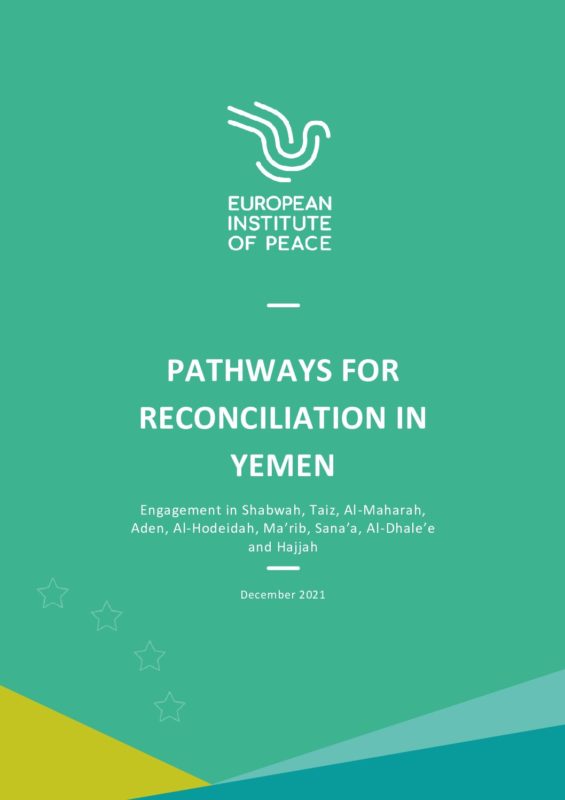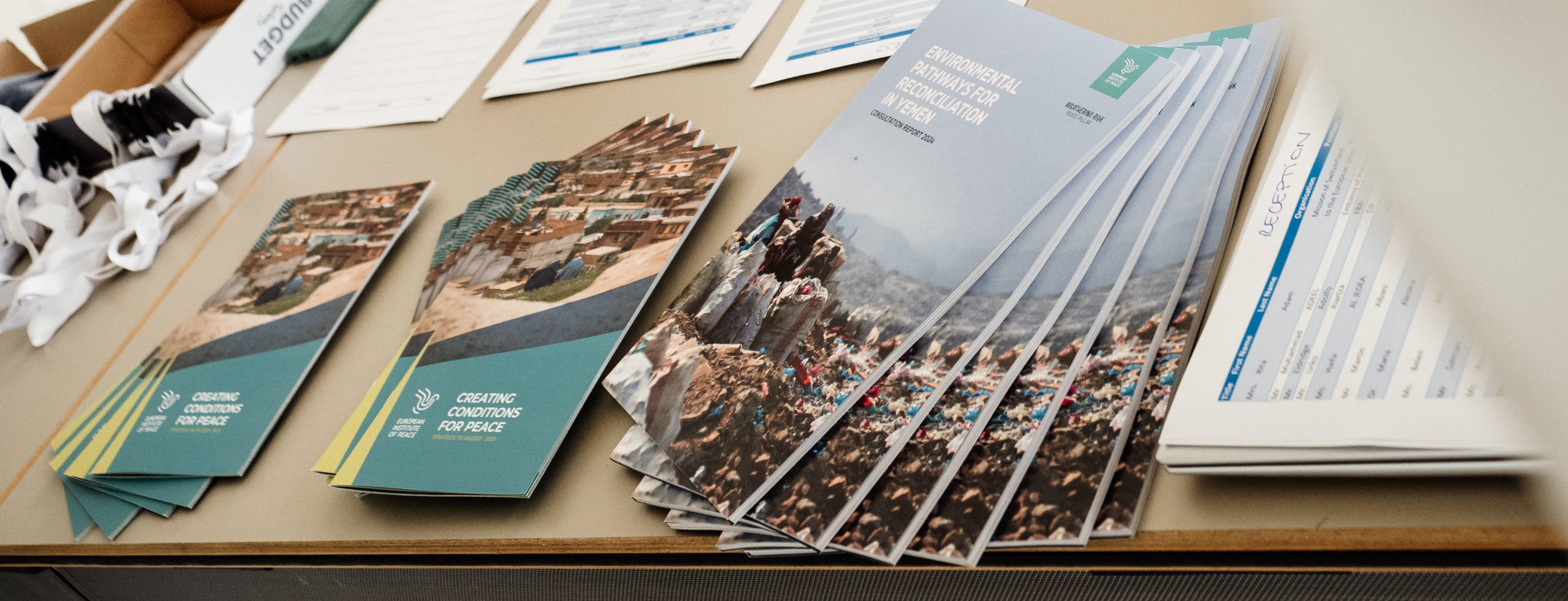Pathways for Reconciliation in Yemen

Engagement in Shabwah, Taiz, Al-Maharah, Aden, Al-Hodeidah, Ma’rib, Sana’a, Al-Dhale’e and Hajjah
Introduction
The Pathways for Reconciliation in Yemen project* was developed under the European Institute of Peace’s Conflict Justice and Reconciliation programme. It is the largest effort in recent history and ongoing conflict to engage members of society to consider their needs, perspectives and rights in the search for lasting peace. This report covers highlights from consultations with nearly 16,000 people in nine governorates in Yemen between October 2020 and October 2021.
The process reflects a commitment that peace must be shaped by genuine participatory engagement with society beyond those actively engaging in hostilities or involved with the conflict parties. The likelihood of obtaining a legitimate and sustainable settlement significantly depends on how inclusive the process is and the extent to which it engages beyond elite voices of the powerful.
Yemen benefitted from the 2013–2014 National Dialogue Conference (NDC). While some of the ideas and conclusions it reached remain relevant, the conditions in the country are now significantly worse. Although the NDC was innovative and inspirational, its model can be improved upon to promote a more inclusive process that helps facilitate more legitimate outcomes.
The process of engagement is an essential aspect of sustainable peacebuilding. It should not be seen as a ‘soft’ option or an ornament to ‘serious’ talks with conflict parties. Sustainable peace ultimately requires a critical mass of society to buy into any settlement. To do so, they must believe it represents an improvement to the status quo, and that it is in their interest to stick with it and to withhold support from potential spoilers. The more seriously the settlement’s creation takes into account the views of the wider society, the greater the chances of conferring legitimacy and obtaining buy-in.
The Pathways to Reconciliation initiative identifies the priorities and concerns of ordinary citizens. While some of the findings may not surprise, this does not limit their usefulness. Citizens’ genuine engagement in the initial steps of this process is of the utmost importance. A striking proportion of those consulted (78 per cent) did not support any political party; they consider themselves unrepresented, and with no appropriate avenues in which to express their needs and aims.
* A civil society focus group endorsed the idea of describing the process as اليمن مسارات للمصالحه فى which resonates with local values and translates well into Arabic. It translates to pathways for reconciliation in Yemen and avoids the problematic use of ‘transitional justice’, which does not translate as well and can create confusion.

